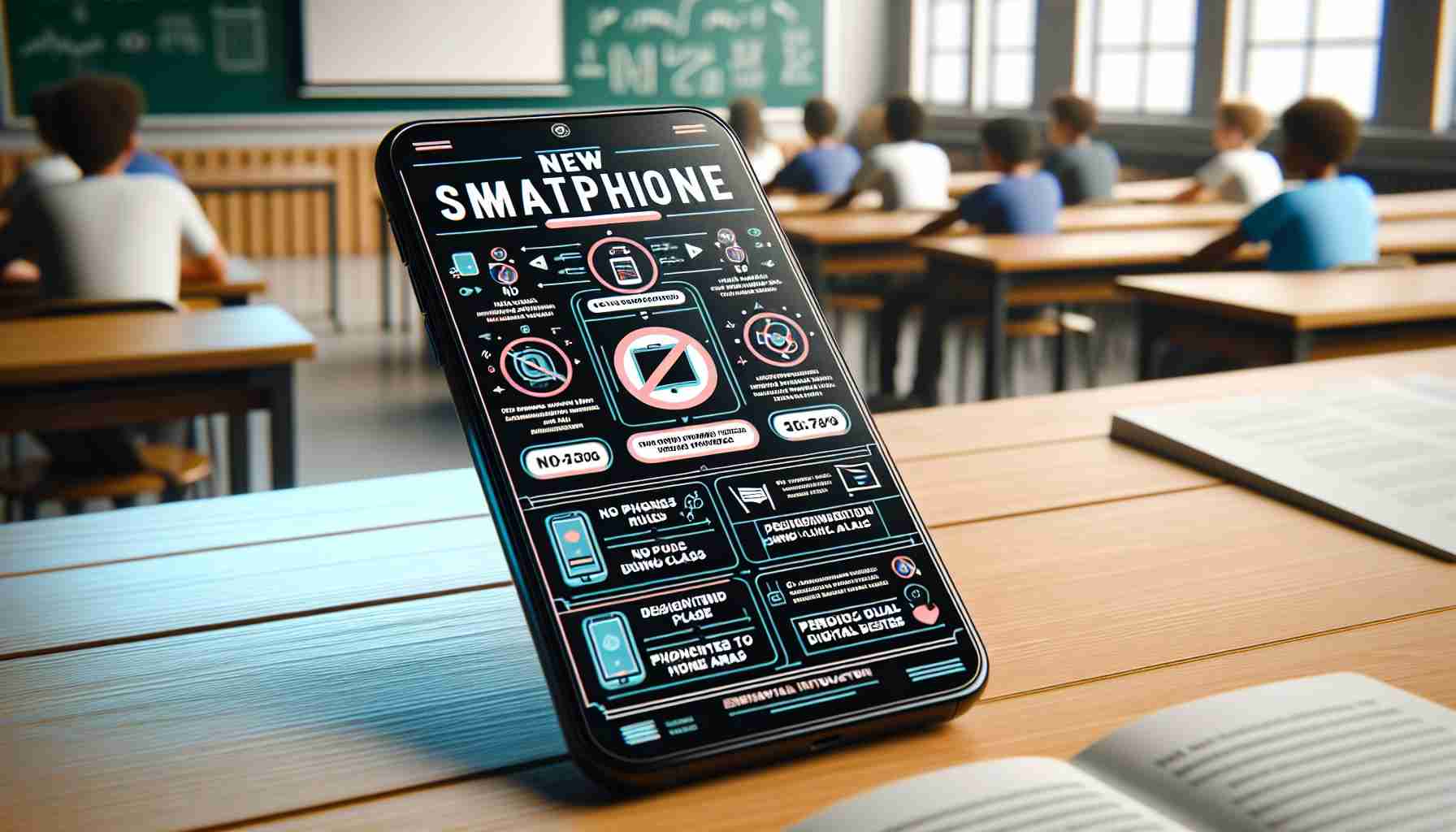In recent developments, schools are beginning to establish stricter guidelines regarding smartphone usage in an effort to foster better social dynamics among students. New rules implemented at the Zinzendorfschule in Königsfeld require students to keep their mobile devices in silent mode or switched off throughout the school day, except during recess, where usage is limited to designated areas.
Erdmuthe Terno, the pedagogical director at the Zinzendorfschule, asserted that previous regulations did not yield the desired outcomes. The initiative emerged from discussions involving both educators and students, highlighting a shared need for a structured approach to device usage. The school now imposes consequences for students caught using their phones improperly, including temporary confiscation.
This approach aligns with findings from a comprehensive study conducted by researchers at the University of Augsburg, who analyzed data from multiple countries, concluding that smartphone bans can lead to a more positive social atmosphere among students. However, the researchers emphasized that such bans should be supported by educational guidance to be effective.
Schools like the Karl-Brachat-Realschule are echoing similar sentiments, advocating for a complete prohibition of smartphones to tackle issues such as distraction and cyberbullying. With increasing concerns regarding the implications of mobile device use within educational environments, administrators are keen to establish regulations that promote healthier interactions among students while still acknowledging the importance of digital literacy for parents and students alike.
Enhancing School Life Without Smartphones
In an era where smartphones are ubiquitous, schools are adapting by implementing stricter smartphone usage regulations to enhance student interactions and learning experiences. Here are some tips, life hacks, and interesting facts that can help you navigate this transition smoothly.
1. Embrace the ‘Digital Detox’
The idea of a digital detox might seem daunting, especially for students who are accustomed to having constant access to their devices. However, taking breaks from technology can have numerous benefits, such as improved focus, better sleep, and enhanced emotional well-being. Use this time to engage in hobbies like reading, sports, or arts and crafts, which can help foster creativity and relaxation.
2. Create a Phone-Free Zone
Encourage the establishment of phone-free zones during key times, such as during meals or study sessions. This not only helps improve communication skills but also strengthens relationships. Consider designating certain areas at home, such as the dining room or living room, as tech-free to promote family bonding.
3. Foster Face-to-Face Communication
With smartphones out of the picture, students can enhance their social skills through in-person conversations. Create opportunities for students to interact with classmates through group activities, discussions, or even school clubs. This will help them learn vital social cues and improve their confidence in public speaking.
4. Utilize Time Management Apps
While smartphones may be restricted at school, using them wisely outside school hours can aid in time management. Apps like Trello or Todoist can help students organize their tasks and manage their homework effectively, ensuring they remain productive while minimizing distraction.
5. Set Clear Boundaries
Encourage students to set clear boundaries for their smartphone usage at home. Designate specific times for social media or gaming, and stick to them. This will cultivate self-discipline and responsibility, enabling them to balance their responsibilities with leisure.
Interesting Fact: Research indicates that smartphone bans in schools have been linked to improved academic performance. In some studies, schools that implemented restrictions saw an increase in test scores and overall student engagement.
6. Balance Digital Literacy with Restrictions
While restrictions on smartphone use are necessary to reduce distractions, it’s equally important to promote digital literacy. Encourage students to engage in discussions about responsible online behavior, such as recognizing cyberbullying and understanding the importance of privacy settings.
7. Involve Parents and Staff
Collaboration between students, parents, and school staff is vital for the success of any new policy. Schools should facilitate workshops that educate parents about the rationale behind smartphone regulations and empower them to reinforce similar guidelines at home.
As schools like Zinzendorfschule and Karl-Brachat-Realschule begin to solidify their smartphone policies, these tips and facts can help students adapt and thrive in a less digitally dependent school environment. For further insights on nurturing healthy interactions amid changing classroom dynamics, visit Education.com.























